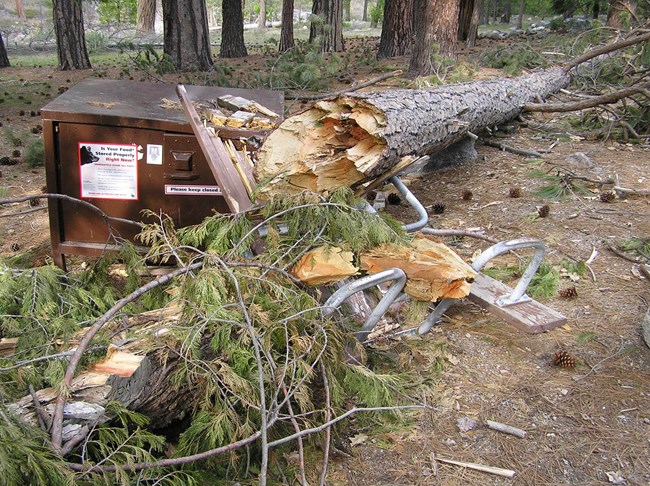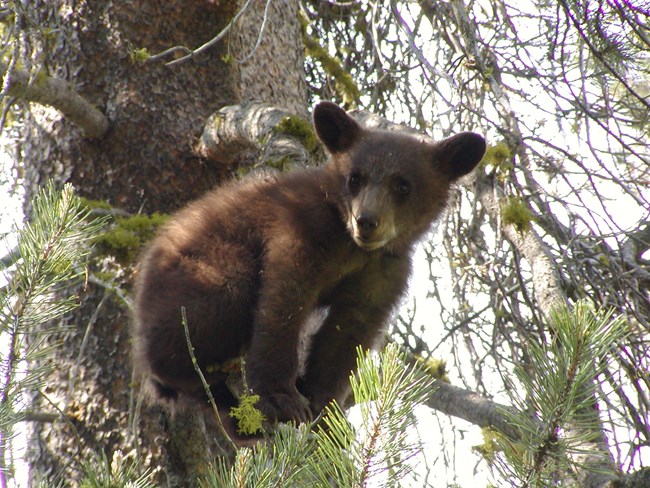|
Camping with friends and family can be enjoyable, but there are some risks when staying in the outdoors. Play it safe and follow these precautions. As always, check to see if fire restrictions are in effect during your trip. 
NPS Photo Falling ObjectsBeware: Branches and trees may fall whether or not they are dead, and when there is no wind. Trees and branches have been falling more frequently, possibly due to drought and beetle damage. Visit our Tree Hazards page for information about how to stay safe. LightningLightning is common in central California where storms can start suddenly. If you see dark clouds or lightning or hear thunder, move inside a large building or a vehicle (not a convertible). The tent and picnic shelter are not safe places to wait out a thunderstorm. Wait 30 minutes until after the last rumble of thunder before going back to the campsite. 
Alison Taggart-Barone Camping in Wildlife's BackyardWhen you visit our parks and stay in campgrounds, you are in the home territory of a vast number of widlife species. Expect snakes, bears, deer, and other animals to be present in and around your campground, and learn how to react appropriately. Our Wildlife Safety page has some great tips if you are encountered by animals in or near your campsite. Keep a Safe, Tidy CampsiteStoring food properly keeps both humans and bears safe. All food, trash, and items with a scent must be stored in food-storage boxes at each campsite. Learn how to protect your personal property, your food, and bears all at the same time. River SafetySome of our campgrounds are located along rivers. While it is tempting to swim and cool off in our rivers, drowning is the leading cause of death in the parks. People not intending on swimming often fall and injure themselves while climbing on the slippery shoreline rocks. Hypothermia is also common. To reduce the chance of injury or worse, our Rivers page contains some helpful tips on how to avoid risks. Carbon MonoxideCarbon monoxide (CO) is an odorless, colorless, nonirritating gas produced by the incomplete combustion of carbon-based fuels. To avoid exposure, never burn charcoal in closed spaces such as a tent or RV. Firewood and Transporting Nonnative Insect PestsPlease don't travel with firewood, which can carry invasive species such as fungus, insects, or other pests that can threaten the health of a forest and its local wildlife. Help protect the parks by getting firewood at or near your campsite. Buy firewood at local markets, including those inside the parks, or gather dead and down wood near your site. Do not cut living or standing trees, and leave any remaining firewood after your trip. Reduce Your Risk of Plague and HantavirusPlague and hantavirus are associated with wildlife found in these parks, but cases of human infection are rare. |
Last updated: May 31, 2024
